Islamic
benefits of fasting, day of Arafah fasting, fasting and discipline, fasting and self-control, fasting beyond Ramadan, fasting for forgiveness, fasting in Islam, fasting on Mondays and Thursdays, health benefits of fasting, Islamic lifestyle, Islamic spirituality, six days of Shawwal, Sunnah fasting, Sunnah practices, voluntary fasting, Zeeshan Azhar
Zeeshan Azhar
0 Comments
The Wisdom Of Fasting Beyond Ramadan
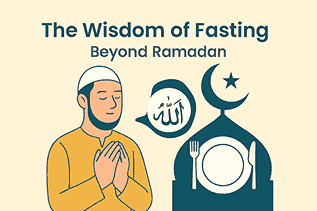
Fasting is one of the greatest acts of worship in Islam. Every year, Muslims around the world fast during the blessed month of Ramadan. From dawn to sunset, they abstain from food, drink, and desires for the sake of Allah. Ramadan is a month of mercy, forgiveness, and spiritual renewal. However, the wisdom of fasting does not end with Ramadan. Islam encourages believers to continue fasting at different times of the year. These voluntary fasts carry deep spiritual, physical, and social benefits that transform a believer’s life.
Fasting as a Lifelong Act of Worship
The Qur’an reminds Muslims that fasting was prescribed not only to train self-restraint but also to develop taqwa, or God-consciousness. Once Ramadan ends, the believer is expected to carry this training forward. Voluntary fasting is a way to strengthen that connection with Allah throughout the year.
The Prophet Muhammad ﷺ taught his companions to fast beyond Ramadan. For example, he encouraged fasting six days of Shawwal, the month that follows Ramadan. He also advised fasting on Mondays and Thursdays, and on the 13th, 14th, and 15th of each lunar month. These practices remind believers that fasting is not limited to one month but is a constant act of devotion that keeps the soul disciplined.
Spiritual Benefits of Voluntary Fasting
Fasting beyond Ramadan helps a believer remain spiritually awake. During Ramadan, Muslims experience a spiritual high because of increased worship, prayer, and charity. But once the month ends, the routine of daily life can weaken that spiritual focus. Voluntary fasting helps maintain the same discipline and reminds the heart of Allah’s presence.
By controlling hunger and desires, the believer learns patience and humility. Fasting breaks pride and reminds the soul that it is dependent on Allah for every blessing. It also brings sincerity, because no one except Allah knows whether a person is fasting. This secrecy strengthens the intention and makes fasting a pure act of worship.
Fasting and Forgiveness
One of the greatest wisdoms of fasting beyond Ramadan is that it opens the doors of forgiveness. The Prophet ﷺ said that whoever fasts Ramadan and follows it with six days of Shawwal will be rewarded as if he fasted the entire year. This shows how Allah multiplies good deeds and provides opportunities for His servants to gain closeness to Him.
Other voluntary fasts, like those on Mondays and Thursdays, are also linked to forgiveness and mercy. According to hadith, the deeds of a believer are presented to Allah on these days, so the Prophet ﷺ loved to be fasting when his deeds were shown. This highlights how fasting connects the believer to moments of divine acceptance.
Physical and Health Benefits
Beyond spiritual growth, fasting has clear physical benefits. By abstaining from food and drink for several hours, the body is given time to rest and cleanse itself. Modern science confirms that fasting can help regulate blood sugar, improve digestion, and even support mental clarity.
Intermittent fasting is now widely studied in the medical field, but Muslims have been practicing it for centuries. While the intention of voluntary fasting is for the sake of Allah, the health benefits remind believers that Islam provides complete guidance for both body and soul.
Social Benefits of Fasting
Fasting beyond Ramadan also nurtures compassion. When a believer feels hunger, he remembers the poor and needy. This leads to gratitude for blessings and inspires acts of charity. Voluntary fasts can also be shared with family or friends, creating a culture of worship and unity.
In addition, fasting protects society by reducing sinful behavior. Hunger weakens the hold of the ego and reduces arrogance, anger, and negative desires. A person who controls himself while fasting becomes more gentle, forgiving, and kind toward others.
Fasting as Protection
The Prophet Muhammad ﷺ described fasting as a shield. This means it protects a believer from harmful desires and sinful actions. In today’s world, where temptations are everywhere, voluntary fasting helps believers resist harmful habits. By training the soul to say “no” to permissible food and drink, the believer becomes stronger at saying “no” to what is forbidden.
Following the Sunnah of the Prophet ﷺ
Continuing fasting beyond Ramadan also means following the Sunnah of the Prophet ﷺ. His life was the perfect example of balance between worship and worldly duties. By fasting on specific days, believers not only gain reward but also feel connected to his blessed lifestyle. Following his Sunnah brings blessings into daily life and ensures that worship is done in the way most pleasing to Allah.
Wisdom in the Timing of Voluntary Fasts
The different times recommended for fasting carry special wisdom. Fasting on Mondays and Thursdays is linked to the presentation of deeds, while fasting the white days of the lunar month helps believers keep track of the Islamic calendar. Fasting on Ashura, the 10th of Muharram, reminds Muslims of the salvation Allah gave to Prophet Musa (Moses) عليه السلام. Fasting on the day of Arafah, for those not performing Hajj, brings forgiveness for the sins of two years.
Each voluntary fast not only brings reward but also connects believers to the history of prophets, the mercy of Allah, and the wider Muslim community.
A Continuous Journey of Self-Improvement
Fasting beyond Ramadan transforms life into a continuous journey of self-improvement. Every fast becomes a reminder that this world is temporary and that the real goal is to please Allah. Each act of patience during hunger strengthens faith. Each prayer during fasting becomes more heartfelt.
By combining regular fasting with daily prayers, charity, and good character, a believer builds a strong shield against the challenges of life. This continuity keeps the heart alive and prepares the soul for the eternal life after death.
Conclusion
The wisdom of fasting goes far beyond Ramadan. Voluntary fasting nurtures spirituality, strengthens the body, and uplifts society. It protects the believer from sin, purifies the soul, and connects him with the Sunnah of the Prophet ﷺ. Each fast, whether it is six days of Shawwal, Mondays and Thursdays, or other blessed days, carries immense rewards in this world and the hereafter.
A Muslim who makes fasting a part of life experiences discipline, peace, and closeness to Allah throughout the year. Ramadan is a training ground, but voluntary fasting is the lifelong practice that keeps the believer strong. Truly, fasting is not just an act of worship but a shield, a cure, and a path to Allah’s mercy.
Tag
benefits of fasting day of Arafah fasting fasting and discipline fasting and self-control fasting beyond Ramadan fasting for forgiveness fasting in Islam fasting on Mondays and Thursdays health benefits of fasting Islamic lifestyle Islamic spirituality six days of Shawwal Sunnah fasting Sunnah practices voluntary fasting Zeeshan Azhar
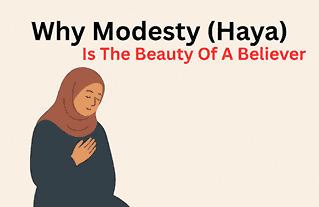

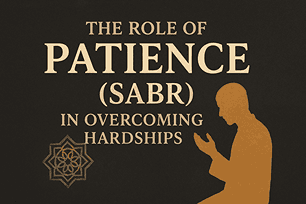


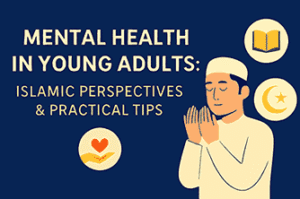

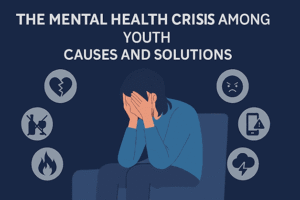





Post Comment